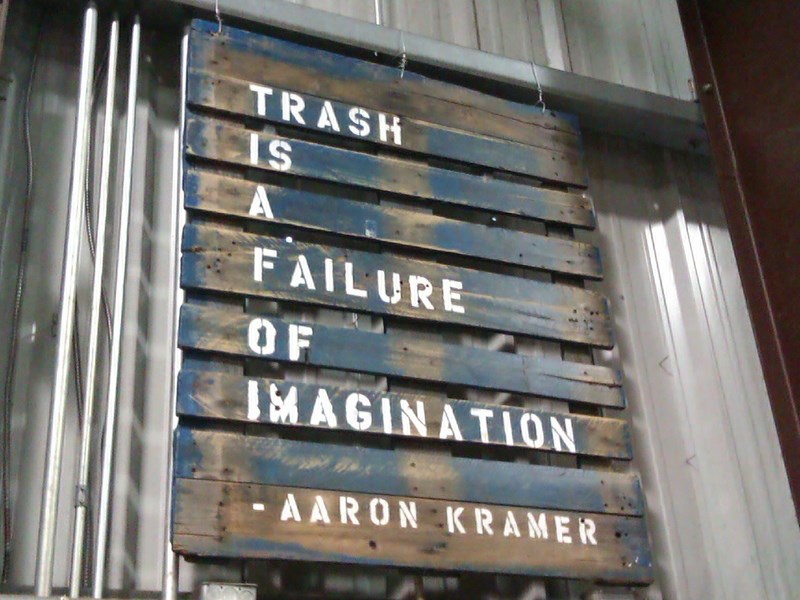A public information session for interested individuals, groups, organizations and companies to share ideas for diverting waste materials through the planned resource-recovery centre site resulted in a number of ideas.
Regarding the public meeting held on January 21, CaroleAnn Leishman, chair of the solid waste management plan monitoring advisory committee, said the presenters and discussion gave attendees some ideas of opportunities that exist in the diversion and repurposing sectors of waste management and showed them that these out-of-the-box ideas have worked in other places and can work here.
“I am hopeful that individuals, businesses and nonprofits will pull their ideas together into proposals and business plans and approach the [City of Powell River] and/or the qathet Regional District (qRD) about what opportunities may exist at the resource-recovery centre (RRC) or nearby, and how we can work with them to realize some of these ideas,” said Leishman.
“If there are any materials that people would like to be diverted and collected for them to repurpose in some way, they should contact qRD or the Let’s Talk Trash Team about potentially having these items separated out of the waste stream in the future. There are a lot of useful, valuable materials being sent to landfill everyday merely because no one has come forward identifying that they want it, and there’s nowhere to stockpile it or prepare it for repurposing. I see a lot of creative opportunities here with the new RRC being built.”
Tai Uhlmann, a member of the Let’s Talk Trash Team, said there were about 40 people in attendance from the public at the meeting, plus presenters and staff from qathet Regional District and City of Powell River.
She said the RRC project is going into the pre-design phase, so those associated with the project want to know how to design the site for diversion.
“We know we can accept all of the different extended producer responsibility programs, like the printed paper and packaging, and then beyond that, we can sort it however we want,” said Uhlmann. “We want to know from the material coming through the site, which ones people are interested in. What do they want to access for local diversion? Do they want glass to make tiles out of, or does somebody want clean wood waste separated out? How can we increase our diversion locally through identifying the people who want the materials?”
Uhlmann said meeting organizers wanted people to come with ideas so those associated with the RRC project can figure out how to facilitate diversion for them. She said that at the meeting, the appetite was there, especially for clean wood waste and building materials.
She said there is also a real demand for a Restore, which is not something the regional district would build and operate, but if the materials come to the RRC, those materials could be diverted.
“Say we got several doors or windows or reusable appliances or wood or sinks; we could set those aside,” said Uhlmann. “We could have a space there for someone who was interested in certain materials.”
Part of the design of the RRC might be that there is a tipping floor for solid waste materials for diversion, and the items would go into bins if nobody takes the items. Some regulations would have to be worked out about how the items could be reclaimed.
“It would probably be staff that was separating the materials; we want to design for diversion, but we don’t want to just stockpile material for nobody,” said Uhlmann. “We are trying to identify who would actually take the material. Let’s Talk Trash is trying to do preliminary recommendations. We are trying to be flexible in the design.”
Partly because Powell River is isolated, and because solid waste has to be shipped to Washington State, those working on developing the RCC are looking at local options to make use of as many materials as possible, and move closer to zero waste.
“We have to be really creative and look at local solutions,” said Uhlmann. “The impact of shipping our waste 770 kilometres one way is substantial so we want to reduce our greenhouse gas emissions and be forward thinking.”



